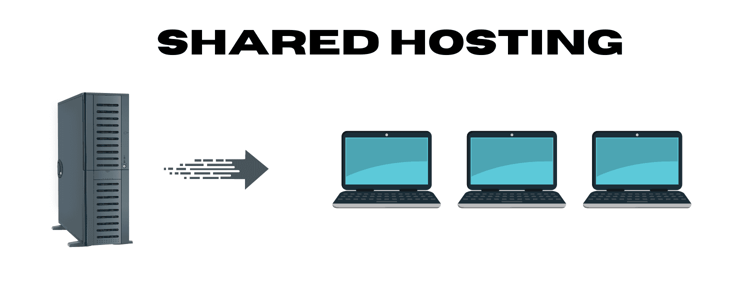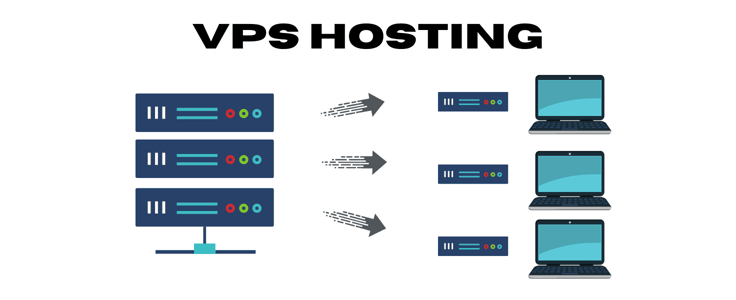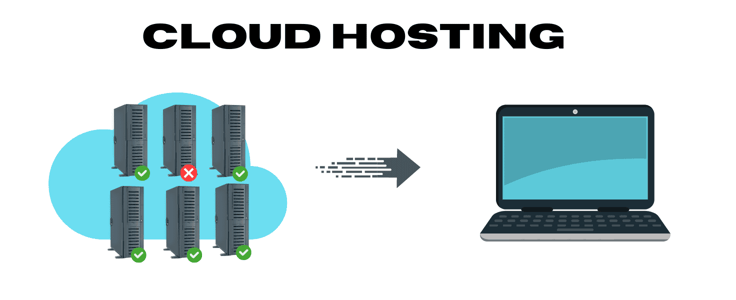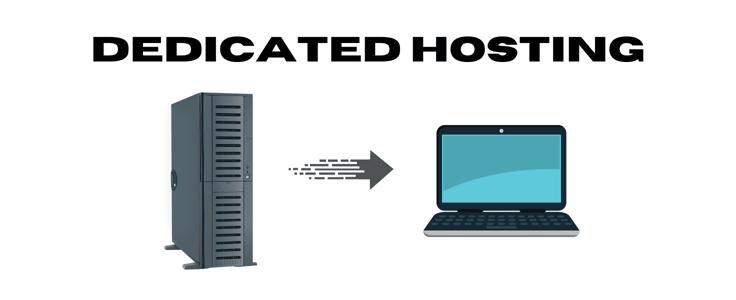
Anyone building a website needs to find a place to host it. After all, web hosting isn’t just helpful; it’s necessary for a website to run and be accessible. However, once you start researching web hosting providers, you’re likely to find that there are actually different kinds of web hosting.
That’s right, not all web hosting is the same, and the type you need will depend on your website and the services you need. Web hosting types can get a little complicated, which is why I’ve put together this guide. What are the different types of web hosting? Read on to find out.
-
Navigate This Article:
Shared Web Hosting: Best for Beginners, Portfolios, and Bloggers
Starting Cost: $1/month
Monthly Traffic: Up to 300,000 visits/month
Shared hosting involves a web hosting service storing the data of many websites on one web server. Shared hosting is the most affordable kind of hosting and is the go-to for most users who want something cheap that can host a basic website with less than a hundred thousand visitors per month.

Features unique to shared hosting include:
- Low starting price
- Easy to use and designed for average users
- Great for smaller WordPress websites and other blogs.
The main downside to shared hosting is that it can result in slower load times, especially in situations where there’s more traffic to your website than usual. Additionally, considering your server is shared with others, there can be risks associated with lesser security and more downtime, though web hosting services have been getting better at ensuring this doesn’t happen.
VPS Web Hosting: Developer-Friendly
Starting Cost: $2/month
Monthly Traffic: Up to 1 million visits/month
VPS web hosting, or virtual private server web hosting, is basically a compromise between shared hosting and dedicated web hosting. In VPS web hosting, a server is partitioned so that each virtual server has its own operating system, disk space, and bandwidth. VPS web hosting offers more control than shared hosting while remaining relatively affordable and scalable.

Features unique to VPS hosting include:
- Still relatively affordable
- Highly customizable compared to shared hosting
- Scalable as your website grows
VPS web hosting still technically involves sharing a server with others, so your website won’t get all the resources associated with dedicated web hosting. As your website grows, you may find that you need to switch to a dedicated server. Still, developers may want to consider VPS web hosting for its customizability.
Cloud Web Hosting: Ideal for eCommerce and High Traffic
Starting Cost: $4/month
Monthly Traffic: Unlimited, depending on plan
Cloud web hosting is a little different from traditional hosting in that with cloud hosting, your website isn’t stored on a single server. Instead, it’s stored across a virtual network of multiple servers. That means that it can dynamically scale resources across the network depending on traffic needs, which can result in a better-performing website overall.

Features unique to cloud hosting include:
- Increased reliability and scalability
- Faster performance compared to traditional hosting
- Cost-to-performance ratio is higher
Cloud hosting is more expensive than traditional hosting, but the performance benefits may be worth it for some. Additionally, cloud hosting may be a little less secure than dedicated servers, considering the fact that files and data are stored across multiple servers rather than just one.
Dedicated Web Hosting: Made for Enterprises and Large Sites
Starting Cost: $32/month
Monthly Traffic: Unlimited, depending on plan
Dedicated web hosting may be another traditional hosting plan, but it’s the best of the best when it comes to traditional hosting. That’s because, with dedicated web hosting, you get access to your own server, all to yourself. The advantage of this is that your data is safer because it’s isolated. The performance of your website will be better in high-traffic situations, considering the fact that it’ll have more resources dedicated to it. Additionally, dedicated web hosting services usually offer more customization in terms of server resources and needs.

Features unique to dedicated hosting include:
- Increased resources dedicated to your website
- Increased security due to data separation
- More customizable in terms of server needs
There are some downsides to dedicated web hosting. Typically, dedicated web hosting services cost more than other services, and depending on the service, the extra customization associated with a dedicated server can also translate to more complexity in setting up and managing a website.
Specialty Web Hosting
Even within the types of web hosting highlighted above, there are more nuances. There are plenty of purpose-built, specialty web hosting services that might better suit your needs. Here’s a rundown of some of the most popular specialty hosting options.
- WordPress Hosting: A web hosting service optimized for the most popular content management system, ensuring better WordPress performance.
- Reseller Hosting: A type of white-label web hosting that allows customers to sell hosting services to others. In this case, a hosting provider handles the technical aspects of managing hosting equipment while the reseller acquires customers and manages customer service.
- Colocation Hosting: A service that’s akin to renting space for your own servers. In colocation hosting, you’ll essentially rent space, power, cooling, and internet access. But you’ll provide your own servers and equipment.
- Managed Hosting: A hosting service in which the provider handles many of the technical aspects of hosting, including setup, support, and administration. This often increases website performance.
- WooCommerce Hosting: A hosting service specifically designed for the WooCommerce eCommerce platform. WooCommerce hosting is optimized to safely process payments, manage customer profiles, and so on.
As you can see, there are plenty of specialized hosting services, and if you have a good idea of the kinds of services you need hosting for, it’s worth considering a specialized service for increased performance and support.
A Hosting Service For Everyone
No matter what your needs are, there is a hosting service for you. For the vast majority of users, a shared hosting service will be more than enough. However, those with more niche needs may want to upgrade to a VPS or dedicated web hosting service, while others will want to go for cloud hosting services for their better reliability. Still, others should consider a specialty web hosting service, especially those who plan to use WordPress or another content management system.





